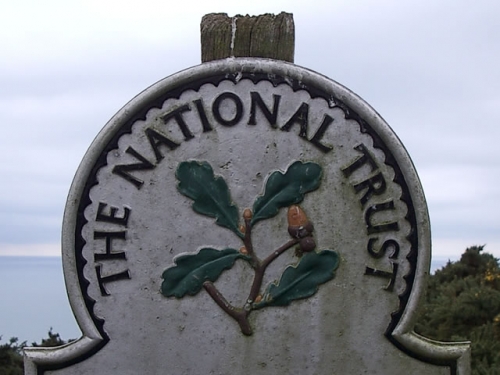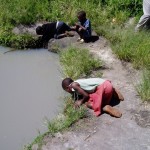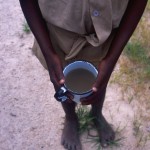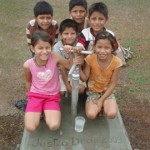 The Sport Tourism Opportunities for Research, Mobility and International Networking Group (STORMING) Initiative awarded by the Economic and Social Research Council (ERSC) to Dr. Richard Shipway offered seventeen travel and conference bursaries for UK-based early career researchers to each attend one of three international networking events. This grant scheme formed part of the ESRC’s ‘International Training and Networking Opportunities Programme’. The project utilised the bursaries to both increase international mobility and provide networking opportunities for emerging early career researchers with a commitment to supporting and further developing sport tourism research. Bursaries were awarded across eleven higher education institutions. The 2012 Olympic and Paralympic Games also acted as a catalyst for this project, highlighting the impacts of sport events.
The Sport Tourism Opportunities for Research, Mobility and International Networking Group (STORMING) Initiative awarded by the Economic and Social Research Council (ERSC) to Dr. Richard Shipway offered seventeen travel and conference bursaries for UK-based early career researchers to each attend one of three international networking events. This grant scheme formed part of the ESRC’s ‘International Training and Networking Opportunities Programme’. The project utilised the bursaries to both increase international mobility and provide networking opportunities for emerging early career researchers with a commitment to supporting and further developing sport tourism research. Bursaries were awarded across eleven higher education institutions. The 2012 Olympic and Paralympic Games also acted as a catalyst for this project, highlighting the impacts of sport events.
The main objective of the STORMING Initiative was to deliver a series of international sport tourism networking events across four continents. These events were aligned with existing conferences in the area of sport, tourism, events, and leisure studies. The first event, in Australia in  February 2010, was aligned with the annual CAUTHE (Council for Australian University Tourism and Hospitality Education) conference in Hobart, Tasmania; the second event was aligned with the annual NASSM (North American Society for Sport Management) conference in June 2010 in Tampa, Florida, USA; whilst the third event was aligned with the 11th World Leisure Congress and World Games in ChunCheon, Korea in August 2010. A one-day concluding networking event was held at Bournemouth University in November 2010. This final event brought together all seventeen bursary recipients and several international research mentors and provided the opportunity to outline their research findings, and to engage in a wider debate on the future directions of sport tourism research.
February 2010, was aligned with the annual CAUTHE (Council for Australian University Tourism and Hospitality Education) conference in Hobart, Tasmania; the second event was aligned with the annual NASSM (North American Society for Sport Management) conference in June 2010 in Tampa, Florida, USA; whilst the third event was aligned with the 11th World Leisure Congress and World Games in ChunCheon, Korea in August 2010. A one-day concluding networking event was held at Bournemouth University in November 2010. This final event brought together all seventeen bursary recipients and several international research mentors and provided the opportunity to outline their research findings, and to engage in a wider debate on the future directions of sport tourism research.
In summary, the STORMING Initiative acted as a catalyst for larger research projects within the context of sport and society, the 2012 Games, and internationalisation. The vision for the project was to leave a tangible legacy in the form of seventeen UK based early career researchers with established research profiles in sport tourism and sport event studies, who are now well positioned to benefit from the increasing economic importance of the tourism industry and the enhanced profile of sport as an agent of positive social change in society.



 This research project conducted during 2011 is part of a portfolio of research conducted for the National Trust, the UK’s major conservation charity. The organisation is committed to the aims of widening the appeal of the properties and countryside under its management, as well as providing meaning and inspiration as part of this broad appeal. The measurement of enjoyment, linked to meaning and inspiration is therefore a critical measure in the success criteria of individual properties and the organisation as a whole.
This research project conducted during 2011 is part of a portfolio of research conducted for the National Trust, the UK’s major conservation charity. The organisation is committed to the aims of widening the appeal of the properties and countryside under its management, as well as providing meaning and inspiration as part of this broad appeal. The measurement of enjoyment, linked to meaning and inspiration is therefore a critical measure in the success criteria of individual properties and the organisation as a whole.
 The eTourism Lab,
The eTourism Lab,  While there is agreement that charities nowadays have a greater need for marketing, there is little agreement on how they should be approaching marketing and especially when it comes to the adoption of Social Media; research has shown that they are lagging behind as they are waiting to see how others use this new technology. Today, charities of any size can take advantage of Social Media tools to showcase their organisation to the world without relying on huge budgets. Money is no longer the decision factor, creativity is. Getting a head start and expanding your Instagram presence buy choosing to
While there is agreement that charities nowadays have a greater need for marketing, there is little agreement on how they should be approaching marketing and especially when it comes to the adoption of Social Media; research has shown that they are lagging behind as they are waiting to see how others use this new technology. Today, charities of any size can take advantage of Social Media tools to showcase their organisation to the world without relying on huge budgets. Money is no longer the decision factor, creativity is. Getting a head start and expanding your Instagram presence buy choosing to  Little research has actually been carried out on marketing from a non-profitable organisation’s point of view. Bournemouth University is experimenting with Internet and Social Media to try and classify a best practice for charities to help them engage and create awareness about the problem and how people can help make a change. Facebook and Twitter are primarily used to raise awareness and create story telling. As relationships are the foundation for Social Media sites they are key for charities in order to engage further with their stakeholders. So far our attempts have been successful and we have found that followers are engaging with us through Social Media and we are now looking into ways of raising money through the various platforms to help fund new projects around the world. Using social media strategically will be critical for organisations of the future and the expertise of the eTourism Lab will be widely used for all organisations engaging.
Little research has actually been carried out on marketing from a non-profitable organisation’s point of view. Bournemouth University is experimenting with Internet and Social Media to try and classify a best practice for charities to help them engage and create awareness about the problem and how people can help make a change. Facebook and Twitter are primarily used to raise awareness and create story telling. As relationships are the foundation for Social Media sites they are key for charities in order to engage further with their stakeholders. So far our attempts have been successful and we have found that followers are engaging with us through Social Media and we are now looking into ways of raising money through the various platforms to help fund new projects around the world. Using social media strategically will be critical for organisations of the future and the expertise of the eTourism Lab will be widely used for all organisations engaging. Although a major contributor to life at BU, the study of Tourism is often wrongly maligned as being a niche subject on the periphery of more established areas of study such as Business & Management and Geography. Well, in the UK alone over 100 institutions offer HE courses at undergraduate level including “top tier” universities such as Exeter, Surrey, Strathclyde and Stirling with many more competing for students and staff across Europe and beyond with major concentrations of activity in North America, the Middle East, South East Asia and Australia and New Zealand where tourism is not only a significant area of academic interest but also of valuable income, foreign exchange earnings and employment.
Although a major contributor to life at BU, the study of Tourism is often wrongly maligned as being a niche subject on the periphery of more established areas of study such as Business & Management and Geography. Well, in the UK alone over 100 institutions offer HE courses at undergraduate level including “top tier” universities such as Exeter, Surrey, Strathclyde and Stirling with many more competing for students and staff across Europe and beyond with major concentrations of activity in North America, the Middle East, South East Asia and Australia and New Zealand where tourism is not only a significant area of academic interest but also of valuable income, foreign exchange earnings and employment. Tomorrow, Tuesday 27th September 2011, is World Tourism Day and to celebrate this week on the research blog is Tourism Week. Every day the research blog will be highlighting stories about the excellent work going on in Bournemouth University’s
Tomorrow, Tuesday 27th September 2011, is World Tourism Day and to celebrate this week on the research blog is Tourism Week. Every day the research blog will be highlighting stories about the excellent work going on in Bournemouth University’s 










 REF Code of Practice consultation is open!
REF Code of Practice consultation is open! BU Leads AI-Driven Work Package in EU Horizon SUSHEAS Project
BU Leads AI-Driven Work Package in EU Horizon SUSHEAS Project Evidence Synthesis Centre open at Kathmandu University
Evidence Synthesis Centre open at Kathmandu University Expand Your Impact: Collaboration and Networking Workshops for Researchers
Expand Your Impact: Collaboration and Networking Workshops for Researchers Visiting Prof. Sujan Marahatta presenting at BU
Visiting Prof. Sujan Marahatta presenting at BU ECR Funding Open Call: Research Culture & Community Grant – Apply now
ECR Funding Open Call: Research Culture & Community Grant – Apply now ECR Funding Open Call: Research Culture & Community Grant – Application Deadline Friday 12 December
ECR Funding Open Call: Research Culture & Community Grant – Application Deadline Friday 12 December MSCA Postdoctoral Fellowships 2025 Call
MSCA Postdoctoral Fellowships 2025 Call ERC Advanced Grant 2025 Webinar
ERC Advanced Grant 2025 Webinar Update on UKRO services
Update on UKRO services European research project exploring use of ‘virtual twins’ to better manage metabolic associated fatty liver disease
European research project exploring use of ‘virtual twins’ to better manage metabolic associated fatty liver disease